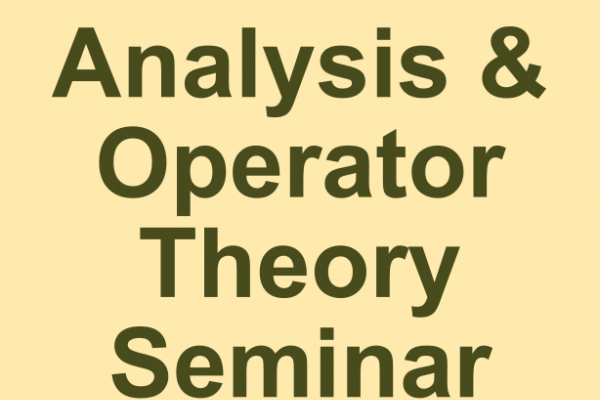
Title: Sign-Changing Points of Solutions of Homogeneous Sturm-Liouville Equations with Measure-Valued Coefficients
Speaker: Ahmed Ghatasheh - The Ohio State University
Abstract: We investigate sign-changing points of nontrivial real-valued solutions of homogeneous Sturm-Liouville differential equations of the form $-d(du/d\alpha)+ud\beta=0$, where $d\alpha$ is a positive Borel measure supported everywhere on $(a,b)$ and $d\beta$ is a locally finite real Borel measure on $(a,b)$. Since solutions for such equations are functions of locally bounded variation, sign-changing points are the natural generalization of zeros. We prove that sign-changing points for each nontrivial real-valued solution are isolated in $(a,b)$. We also prove a Sturm-type separation theorem for two nontrivial linearly independent solutions, and conclude our talk by proving a Sturm-type comparison theorem for two differential equations with distinct potentials.
